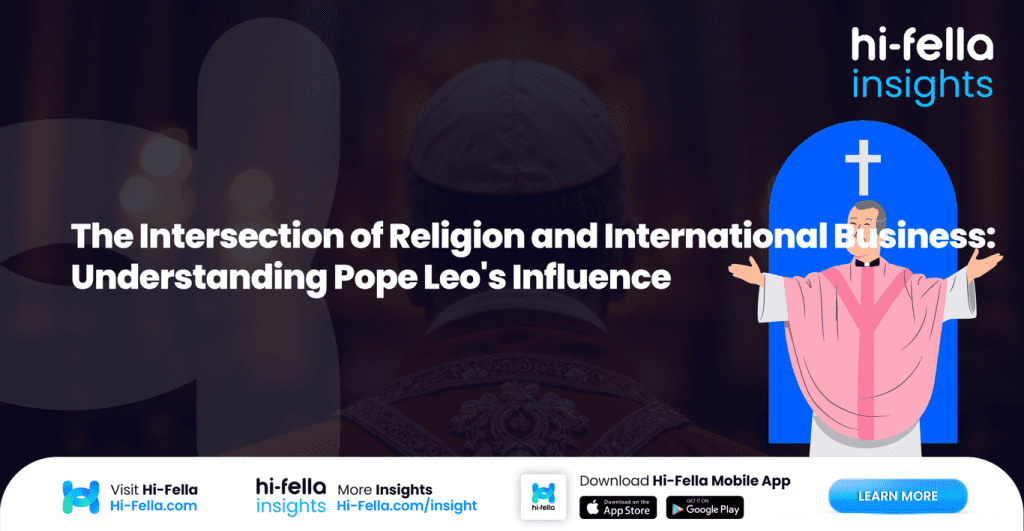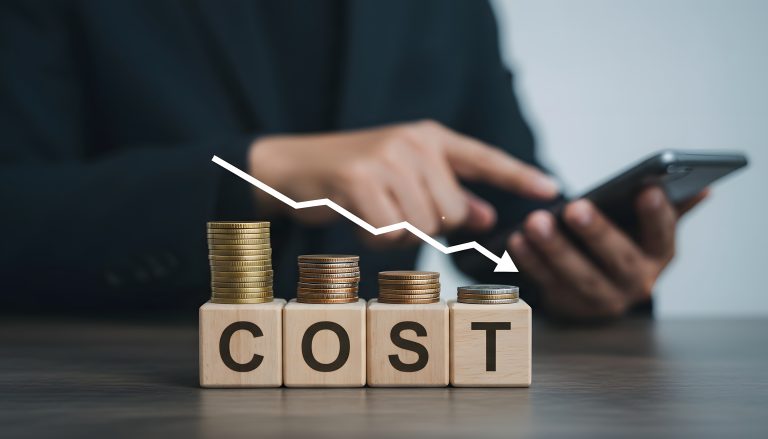In today’s global marketplace, business decisions are shaped by a complex web of economic, political, and cultural factors. Among these, religion remains an often overlooked but profoundly influential dimension. For export-import players navigating diverse regions and stakeholders, understanding how religious ideas inform ethics, governance, and social expectations is not just academic — it is strategic.
One figure whose thought continues to resonate at this crossroads of faith and commerce is Pope Leo XIII. More than a religious leader, his teachings in the late 19th century laid foundational principles that echo in modern international business practices, particularly in ethical governance and social responsibility. To appreciate the ongoing relevance of Pope Leo’s influence, it is essential to explore his historical context, key doctrines, and how these ideas intersect with contemporary global trade dynamics.
Pope Leo XIII: A Brief Contextual Overview
Ascending to the papacy in 1878, Pope Leo XIII inherited a world undergoing rapid transformation. The Industrial Revolution was redrawing economic landscapes, urban populations swelled, and capitalism began to assert its dominance. Amid social upheaval and labor unrest, the Church faced a challenge: how to respond to modern economic realities without losing its moral voice.
In 1891, Pope Leo XIII issued the encyclical Rerum Novarum (“Of New Things”), a landmark document addressing the rights and duties of capital and labor. This encyclical was not merely a theological treatise but a pragmatic guide engaging with real-world issues such as worker exploitation, property rights, and the role of the state. By articulating a vision of social justice grounded in human dignity, Leo XIII crafted a framework that transcended time and geography, influencing social doctrine and eventually business ethics.
Ethical Foundations and the Business Sphere
At the heart of Pope Leo’s teaching was a simple yet profound assertion: economic activity must serve human dignity and the common good. This principle challenges a purely profit-driven model, advocating instead for a balanced approach where rights and responsibilities coexist.
For international business, especially export-import players who engage with labor markets and regulatory environments worldwide, this translates into key ethical considerations:
- The legitimacy of private property coexists with the obligation to use it in ways that respect societal welfare.
- Workers are not mere resources but persons entitled to fair wages and safe conditions.
- Trade unions and collective action are recognized as essential mechanisms for balancing power asymmetries.
These ideas, though articulated over a century ago, have found modern expression in corporate social responsibility (CSR) frameworks and Environmental, Social, and Governance (ESG) criteria. In practice, companies operating in global supply chains are increasingly held accountable not just for product quality or financial returns, but for how their operations impact communities and environments.
Religion as a Cultural and Ethical Compass in Global Trade
The export-import landscape spans countries with diverse religious traditions—Christianity, Islam, Hinduism, Buddhism, among others—each contributing normative values and ethical expectations. Within this mosaic, Catholic social teaching, pioneered by Pope Leo XIII, remains highly influential in many regions, particularly in Latin America, parts of Europe, and the Philippines.
Religious principles shape business practices in several ways:
- They inform societal attitudes toward labor rights, corruption, and environmental stewardship.
- Religious organizations often serve as watchdogs or advocates, promoting fair trade and ethical sourcing.
- Faith-based investment funds increasingly apply moral screening based on religious teachings, affecting capital flows.
Understanding these intersections equips export-import firms to navigate complex stakeholder landscapes with greater cultural competence and ethical clarity.
The Enduring Legacy of Rerum Novarum in Corporate Governance
Corporate governance today is a multi-faceted discipline involving risk management, compliance, and strategic oversight. However, its ethical dimension owes much to early social doctrines like those of Pope Leo XIII.
His advocacy for subsidiarity—the principle that decisions should be made at the most local competent level—offers practical lessons for managing international operations. Decentralizing authority and respecting local contexts aligns with modern governance trends emphasizing stakeholder engagement and regional autonomy.
Additionally, the focus on balancing rights—property rights with workers’ rights—translates into contemporary dialogues about fair wages, human rights due diligence, and transparent reporting. These governance concerns are especially critical for export-import companies, where supply chains stretch across regulatory jurisdictions with varying labor and environmental standards.
Influence on Modern ESG Frameworks and Sustainable Business Practices
The rise of ESG investing has brought social and governance issues to the forefront of business strategy. Pope Leo’s emphasis on justice and ethical responsibility presaged this shift, reinforcing that economic success detached from social welfare is ultimately unsustainable.
Global reporting standards like the Global Reporting Initiative (GRI) and the Task Force on Climate-related Financial Disclosures (TCFD) embody principles that echo Leo XIII’s call for transparency and accountability. For export-import companies, adopting robust ESG practices is not just compliance—it’s a competitive advantage in attracting investors, satisfying customers, and mitigating risks associated with labor disputes or environmental damage.
Challenges and Opportunities for Export-Import Players
Integrating the ethical insights inspired by Pope Leo XIII into global business operations is no small task. Export-import firms face persistent challenges:
- Supply chains are often opaque, involving multiple tiers and jurisdictions, complicating oversight.
- Pressure to reduce costs may conflict with investments needed to uphold social and environmental standards.
- Political and cultural differences can create misunderstandings about labor practices and corporate responsibility.
However, these challenges present opportunities. Firms that proactively engage with social justice principles can:
- Build more resilient and transparent supply chains.
- Foster stronger relationships with suppliers and local communities.
- Differentiate themselves in increasingly values-driven markets.
Case studies of companies that have embedded ethical sourcing and fair labor policies show measurable improvements in operational stability and brand reputation.The Broader Impact of Religious Thought on Global Economic Governance
Beyond individual corporations, religious social teaching influences international organizations and trade policies. The United Nations’ Sustainable Development Goals (SDGs), for example, resonate with many of the themes Pope Leo articulated: poverty alleviation, decent work, and reduced inequalities.
Faith-based coalitions often engage with global economic governance forums to advocate for policies that reflect human dignity and social justice. For export-import players, monitoring these dialogues is essential for anticipating regulatory trends and aligning corporate strategies with evolving global norms.
Conclusion: Why Pope Leo XIII Matters in 21st-Century Business
In an era of rapid globalization, digital transformation, and geopolitical complexity, the intersection of religion and international business is both inevitable and instructive. Pope Leo XIII’s vision offers a moral compass for companies seeking to balance profit with purpose, growth with justice.
For export-import professionals, embracing these insights is more than ethical idealism. It is strategic foresight—acknowledging that sustainable success depends on respecting the human and social fabric that underpins global commerce.
By understanding and applying the principles set forth by Pope Leo, businesses can navigate the challenges of modern trade with wisdom, integrity, and resilience, turning ethical imperatives into enduring competitive advantages.
Join Hi-Fella Today!
Pope Leo’s influence reminds us that ethical foundations and moral responsibility are not just philosophical ideals — they’re powerful principles that shape sustainable international business. For export-import entrepreneurs striving to align values with global strategy, Hi-Fella offers more than just a smart B2B platform.
It connects you with trustworthy, verified partners who share your commitment to integrity, while providing tools that support transparent, responsible trade practices. In a world where ethics increasingly drive decisions, Hi-Fella empowers you to build a business that’s both profitable and principled on the global stage.








